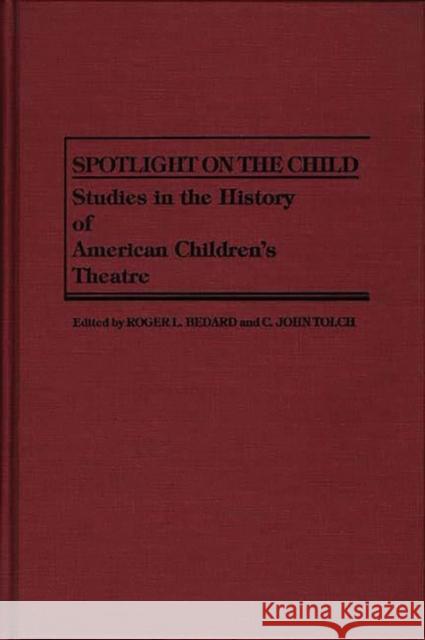Spotlight on the Child: Studies in the History of American Children's Theatre » książka
Spotlight on the Child: Studies in the History of American Children's Theatre
ISBN-13: 9780313257933 / Angielski / Twarda / 1989 / 207 str.
Although children's theatre has been a part of American culture from early times, historians have not always included it in the documentation of our theatrical heritage. Sometimes more the product of the educator and the social worker than the producer or the theatre artist, theatre with and for young people has been neglected in traditional theatre history studies; yet as early as 1792 Charles Stearns began creating his plays and dialogues for school children. The traditions and success of eighteenth-century school drama inspired social workers to explore similar activities in their playground and settlement house work, and at the end of the nineteenth and the beginning of the twentieth century, professional producers began experimenting more vigorously with the commercial possibilities of children as audience.
This book is a collection of essays by leading authorities in the field on various aspects of the historical development of children's theatre in the United States. The discussions focus on the marked differences that have occurred from group to group and examine the ways in which children's theatre began to find definition, as theorists and writers such as Winifred Ward and Charlotte Chorpenning strove to articulate the differences between the child as participant in creative drama and the child as audience member. The introduction provides a review of early concepts and the evolution of present-day thought, and the essays illuminate facets of the rich and varied history of American theatre with and for children. This trailblazing study will serve as the beginning of a fuller understanding of the field and a challenge to others to document the missing pieces.











